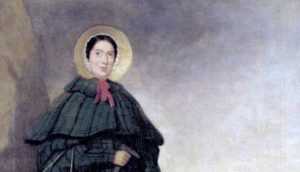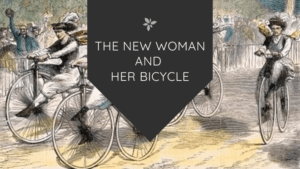“The life of men and women is so cheap and property is so sacred. There are so many of us for one job it matters little if 140-odd are burned to death.” Rose Schneiderman
Rachel Rose Schneiderman (1882–1972) had a difficult childhood. She was born in the village of Sawin in Russian Poland but her parents, who worked in sewing trades, immigrated to New York in 1890. Two years later her father died leaving behind three children and a pregnant wife. Young Rose was forced to stop school at nine in order to take care of her brothers while her mother was out working. A while after her sister was born, her mother was forced to leave the baby with an aunt and send her brothers to the Hebrew Orphan Asylum. Rose was free now to return to school where she stayed until the age of 13. To her disappointment she had to quit school to help her mother support the family. Despite the lack of education she self-educated and remained an avid reader all of her life.
Her first job was as a cash girl in retail stores, a job she held for a little over two and a half years. The miniscule pay and the inexistent chances of advancement forced her to look for a job in the cap making industry. Her first job averaged her $5 a week and a portion of that money was held to pay for the sewing machines, which the girls had to provide. This job was a minimum of 10 hours per day without any kind of insurance.
The first strike she took part and organised happened when the bosses tried to enforce pay cuts in five out of the thirty factories in the city and it ended with a win for the union. The recognition however, for both Rose and the union, came in 1905 during a citywide cap maker’s strike, over an organised effort to turn the factories to the open shop system, something that would undermine the unions and allow the bosses to hire child labour and immigrants willing to work for even smaller wages. During the long strike, Rose emerged as a capable organiser, public speaker and leader.
During that same year Rose joined the New York Women’s Trade Union League (WTUL) an organisation that was morally and financially supporting the organising efforts of women workers. She stayed with WTUL for 45 years and was amongst the most active leaders of the organisation. She served it as president from 1926 until 1950 when it was disbanded. She organised the strike of women waistmakers in 1909 and the same year she participated in the organisation of the garment workers.
As an active feminist she campaigned for women’s right to vote as a member of the National American Women Suffrage Association and helped pass the New York state referendum in 1917 that gave women the right to vote. She always saw suffrage as part of the fight for economic rights. In 1912 a state legislator speaking about women’s right to vote said: “Get women into the arena of politics with its alliances and distressing contests – the delicacy is gone and you emasculate women.” Rose’s reply showed the fallacy of his words:
“We have women working in the foundries, stripped to the waist, if you please, because of the heat. Yet the Senator says nothing about these women losing their charm. They have got to retain their charm and delicacy and work in foundries. Of course, you know the reason they are employed in foundries is that they are cheaper and work longer hours than men. Women in the laundries, for instance, stand for 13 or 14 hours in the terrible steam and heat with their hands in hot starch. Surely these women won’t lose any more of their beauty and charm by putting a ballot in a ballot box once a year than they are likely to lose standing in foundries or laundries all year round. There is no harder contest than the contest for bread, let me tell you that.”
One of the most memorable phrases of the women’s movement came from Rose in 1912 with a textile strike of immigrant and women workers in Lawrence Massachusetts:
“What the woman who labours wants is the right to live, not simply exist – the right to life as the rich woman has the right to life, and the sun and music and art. You have nothing that the humblest worker has not a right to have also. The worker must have bread, but she must have roses, too. Help, you women of privilege, give her the ballot to fight with.”
Rose’s long-time partner and companion was Maud O’Farrell Swartz, another prominent labour activist who served as President of the WTUL from 1922 to 1926 and later as a high-level official at New York’s Department of Labour under Frances Perkins until her death in 1937. In 1950 Rose retired from public life and completed her autobiography, All for One, written in collaboration with Lucy Goldthwaite. The book was published in 1967. Rose Schneiderman died at the Jewish Home and Hospital for the Aged in New York City on August 11, 1972, at age ninety.
Despite the poor and difficult childhood and the lack of formal education, Rose emerged as one of the most influential women in the history of American Labor movement. She fought prejudice and abuse always believing in the power of the union movement and in equality regardless of social casts. Her life’s work, most of the time at the cost of her personal life, shaped the workplace standards and helped women labour workers gain recognition, support as well as education and better life conditions.
Recommended Reading

Aura Eadon is a writer from the UK. Check out her blog The Story Pouch and follow her on Facebook and Twitter as @AuraEadon.










What a fascinating and inspiring story! I wonder whether the strength of personality of such great union activists is often formed in difficult childhoods, as you mentioned here. I interviewed a woman who became head union delegate for one of Tate & Lyle’s East End factories, and when I asked her where her strong sense of right and wrong came from she told me that as a little girl she used to have to protect her mother from her abusive step-father, throwing herself between them when he got violent – on one occasion the man had his hands around her mother’s neck and the little girl whacked him on the head with a metal poker!
It’s so inspiring to hear tales of women like Rose Scheiderman who refused to put up with how things were, and made positive efforts to improve life for others. Thanks for sharing her story.
Nuala
http://www.thesugargirls.com
Wow, what a brave girl! I think you’re right about the effect of a difficult childhood in later activism; it does seem a common thread in other women I’ve researched.
I can’t wait for The Sugar Girls book to be released, all your stories are so interesting!
I agree with previous comment … and in awe of Rose and your research thank you
Rose has really influenced me to fight back more then ever her story is a must read for all who dont understand what unions are about god bless you Rose.